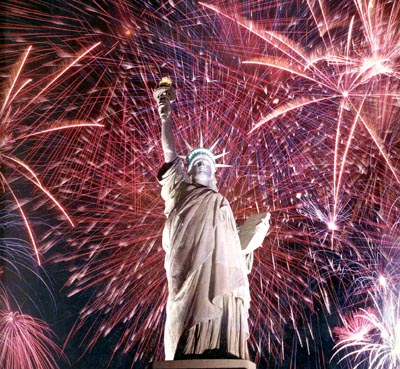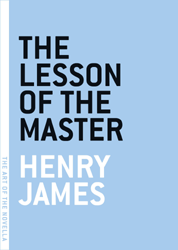“You know what the critics are. If you tell the truth they only say you’re cynical and it does an author no good to get a reputation for cynicism.”
W. Somerset Maugham, Cakes and Ale
Archives for July 2008
BOOK
Elaine Equi, Ripple Effect: New and Selected Poems (Coffee House Press, $18). This effervescent collection, which gathers two decades of Equi’s work with Coffee House Press as well as a handful of early poems, is one of those happy books that you can open to just about any page and find something to delight. Of her work, Equi has said, “I like the fact that for the most part, my poems are pretty accessible.” And it’s true; there’s a Rumi-esque directness to the work here, as well as a playfulness and wit, that’s wonderfully light-footed and sure (CAAF).
MUSEUM
J.M.W. Turner (Metropolitan Museum, up through Sept. 21). The Met’s 140-piece Turner retrospective, the first full-scale look at Turner’s work ever to be mounted in America, is a once-in-a-lifetime occasion, a priceless opportunity to track the evolution of the nineteenth-century English painter whose late canvases (generously represented in this show) march right up to the very brink of abstraction. Like most blockbuster shows, this one is far too much of a muchness, but if you can stand in front of a painting like this without being thrilled to the marrow, you’re looking in the wrong direction (TT).
TT: Not at work
 I came roaring back to New York Monday afternoon and promptly fired off an e-mail to my editor at The Wall Street Journal telling her what actors I’d be mentioning in today’s review of the Hudson Valley Shakespeare Festival. Seconds later she fired back an admirably terse reply that read as follows: “Look at your calendar.”
I came roaring back to New York Monday afternoon and promptly fired off an e-mail to my editor at The Wall Street Journal telling her what actors I’d be mentioning in today’s review of the Hudson Valley Shakespeare Festival. Seconds later she fired back an admirably terse reply that read as follows: “Look at your calendar.”
Duh.
Since there’s no Wall Street Journal today, I’ll be reviewing the Hudson Valley Shakespeare Festival in next Friday’s Journal. And instead of staying in town to see a show, I’m going to have lunch with a colleague, then going straight from the restaurant to Penn Station, where I’ll catch a train for Connecticut and Mrs. T. We’ll be hitting the road next Wednesday for parts north, about which more in due course. In the meantime, I’m soooo out of here.
Happy Fourth of July!
TT: Artistic elephantiasis
 Why is American art so big? The answer, of course, is that some of it isn’t, a fact of which I was recently reminded by Melville House’s nifty little Art of the Novella paperback series, whose fourteen well-chosen titles include Henry James’ The Lesson of the Master, Herman Melville’s Bartleby the Scrivener, and Edith Wharton’s The Touchstone, miniature masterpieces all. Even in America, small can be beautiful.
Why is American art so big? The answer, of course, is that some of it isn’t, a fact of which I was recently reminded by Melville House’s nifty little Art of the Novella paperback series, whose fourteen well-chosen titles include Henry James’ The Lesson of the Master, Herman Melville’s Bartleby the Scrivener, and Edith Wharton’s The Touchstone, miniature masterpieces all. Even in America, small can be beautiful.
Be that as it may, we do seem to have a thing for Great Big Art in this country, and while some of our jumbo art is memorable, even extraordinary, much of it would profit from being put on a diet. I liked Tracy Letts’ August: Osage County a lot, but I seem to have been the only drama critic in New York to have suggested that this three-and-a-half-hour monster is too long for its own good:
There’s a catch, and it’s a huge one: The hour-long first act is a pretentious piece of superfluous exposition that could and should have been cut. I suppose I ought not to suggest that you come late (nudge, nudge), but if you do choose to see the whole thing, take my word that it gets better–a whole lot better–after the first intermission.
All this, needless to say, is the subject of my “Sightings” column in Saturday’s Wall Street Journal, in which I speculate on the causes of the giantism with which so much of our art is afflicted. Pick up a copy of tomorrow’s paper and read all about it.
UPDATE: Read the whole thing here.
TT: Almanac
“New order of the ages” did we say?
If it looks none too orderly today,
‘Tis a confusion it was ours to start
So in it have to take courageous part.
No one of honest feeling would approve
A ruler who pretended not to love
A turbulence he had the better of.
Robert Frost, “For John F. Kennedy His Inauguration”
CAAF: Ovidian query (updated)
I have a question, and I’m hoping one of you kind readers can help me out. Wondering, which translation of Ovid’s Metamorphoses is this snatch of “Jason and Medea” from?:
So she waited three nights till the moon came full and the round circle shone brightly down on the world, and then she went out of the house in flowing robes and barefoot, hair streaming over her shoulders; all alone into the midnight stillness, while the birds and beasts and men reposed in deepest slumber, with never a stir in the hedges, never a rustle in the silent leaves, never a motion of air, only the glitter of starlight.
I came across it a while back but haven’t been able to track down its source. I have Allen Mandelbaum’s translation, which renders the same section this way:
The moon was three nights short of rounding out
its horns. But when its circle was complete
and shone in full upon the earth, then she,
in a loose robe, barefoot, her hair uncombed
and unadorned, went out to wander through
the silences of midnight. Men, birds, beasts–
were all held fast by deep tranquility.
The hedge did not murmur, and the leaves
Not stir; the humid air was motionless.
Only the stars were glittering…
If you know the source of the top one, please shoot an email my way (caaf at artsjournal dot com).
UPDATE: It’s the Rolfe Humphries translation — thanks, Dave Lull!
DVD
Peter Grimes (Decca). In 1969 Benjamin Britten conducted a fully staged studio performance of his most popular opera for the BBC, with Peter Pears singing the title role that he had created a quarter-century earlier. Now that telecast has been released on home video for the first time ever, and it’s a stunner, a handsomely staged, unexpectedly intimate production that shows us exactly how Pears interpreted the role that made him famous. Britten’s conducting is magnetically compelling, just as it is in the studio recording that he and Pears had made a decade earlier, but you will not soon forget the experience of seeing Pears as Grimes. This is one of four DVDs released as part of the new Britten-Pears Collection, and the others, including a similarly memorable 1966 film of Billy Budd, are no less essential–but Grimes is the place to start (TT).
